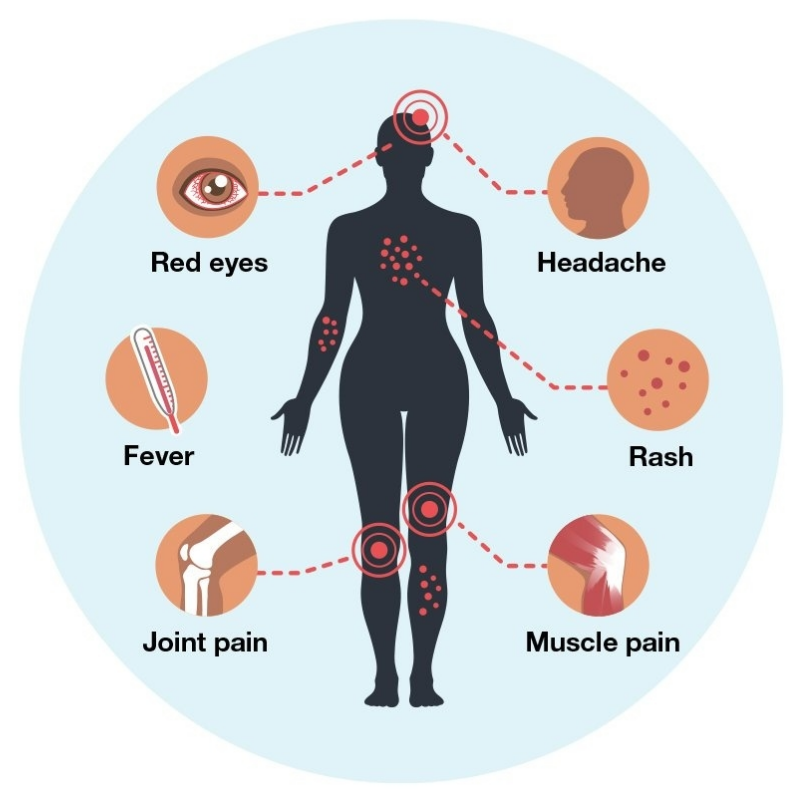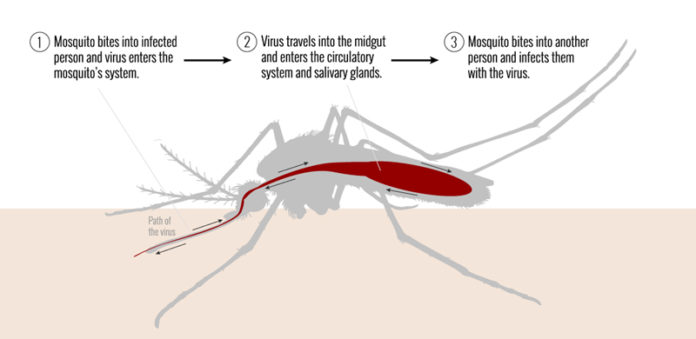It’s been two years since the Zika virus scare first gripped the world. The virus has been implicated in causing an infection, which can trigger complications such as nerve damage and myelitis. Perhaps the most serious casualty of the infection is seen in pregnant women, where the infection can result in foetal abnormalities. But what is Zika virus? Here’s a complete lowdown of the causes, symptoms and treatment of the virus-borne disease.
What is Zika Virus Disease?
The first case was detected in 1947 Uganda in monkeys and later in humans. Since then, Zika virus disease has been recorded in Africa, North and South America, Asia and the Pacific, according to the World Health Organization (WHO). In the last decade, many outbreaks have been recorded in places like the Island of Yap, French Polynesia, Brazil and territories in the Pacific.
India had been relatively safe from the virus. But recently, an elderly woman from Rajasthan has been tested positive for Zika infection, following which the Health Department of the state has been alerted. Mosquitoes With Defective Sperm To Counter Zika Virus Developed by Brazilian Scientists.
How Is Zika Virus Transmitted?
The virus is primarily passed on through the bite of an infected Aedes mosquito, which bites during the day. The bites peak during early morning and late afternoon. The mosquito genus is found in tropical and subtropical regions.
The virus is also transmitted from the mother to the foetus during pregnancy. Sexual contact, blood and plasma transfusion and organ transplantation are some of the other ways the virus is passed on from one person to another.
What Are The Symptoms?
The symptoms of Zika are similar to those of other mosquito-borne diseases like dengue and chikungunya. According to the Center for Disease Control and Prevention (CDC) and WHO, most people who get infected with the Zika virus don’t show any symptoms. After the first exposure, it takes 3-14 days for the disease to first show symptoms. First signs are mild, and they generally include fever, rash, conjunctivitis, muscle and joint pain, headache and fatigue.

Usually, the symptoms of Zika are so mild that the sick generally don’t seek medication for it and they rarely die of the disease. That’s why many people don’t realise that they have been an infection. A blood or urine test helps confirm the infection.
What Are The Complications of the Zika Virus?
One of the biggest complications of the Zika virus disease is congenital abnormalities and microcephaly, where the foetus inside the infected pregnant woman has an underdeveloped head.
Infections in pregnant mothers can also result in miscarriages, stillbirths and preterm deliveries.
In adults and older children, Zika can also trigger Guillain-Barre syndrome, which causes muscle weakness and nerve damage.
How is Zika Virus Disease Treated?
There is no vaccine or medicines to treat the disease. Treatment is mainly managing the symptoms, such as fever, rash and joint pain. Apart from that, the person is advised bed rest and proper hydration.
Medicines such as aspirin and other non-steroidal anti-inflammatory drugs (NSAIDs) should be avoided to minimise the risk of bleeding since they are blood thinners.
How Can Zika Virus Disease Be Prevented?
Prevention is better than cure in the case of Zika virus disease. Follow tips for minimising exposure to mosquitos like using repellents, wearing clothes that cover the limbs, using screens on windows and doors, preventing water stagnation and using mosquito nets.
Caregivers should take care not to touch blood or other bodily fluids of the patient. They should follow proper hygiene by washing hands after contact, disinfecting clothes, keeping the environment clean, etc.




















































